Posted on 4/26/2024
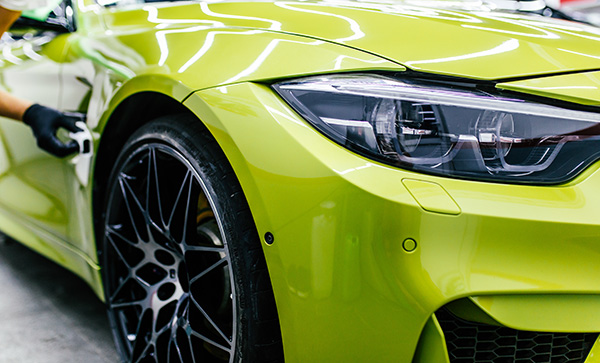
Are you tired of constantly waxing your car to maintain its shine and protection? Have you heard about ceramic coating but wonder if it's worth the hype and investment? Ceramic Coating You may have heard about ceramic coating as the ultimate solution for protecting your car's paint. But what exactly is ceramic coating, and how does it work? Ceramic coating is a liquid polymer applied to the exterior surfaces of a vehicle, forming a transparent layer that bonds with the paint and provides long-lasting protection. Unlike traditional wax, which sits on the surface and wears off over time, the ceramic coating chemically bonds with the paint, creating a durable barrier against environmental contaminants, UV rays, and minor scratches. Benefits of Ceramic Coating Investing in ceramic coating offers a multitude of benefits for car owners: Enhanced Protection ... read more
Posted on 3/27/2024
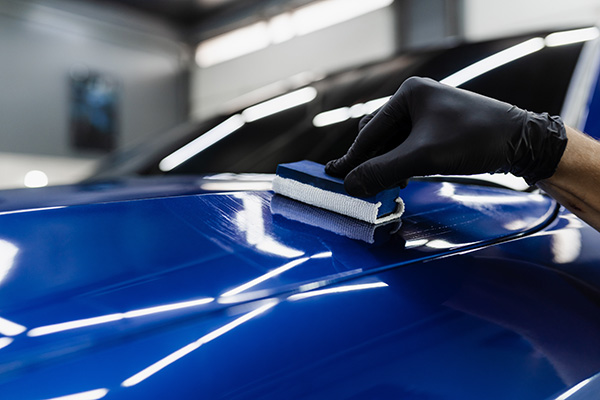
You've just invested in a sleek new car, but the sun's relentless UV rays threaten to dull its shine and fade its paint. Discover ceramic coating – the ultimate shield against sun damage. But how exactly does this innovative technology protect your prized possession from the sun's harmful rays? The Science Behind Ceramic Coating At its core, ceramic coating is a liquid polymer applied to a vehicle's exterior surfaces. When cured, it forms a protective layer that bonds with the paint, creating a durable barrier against environmental contaminants, including UV radiation. Unlike traditional wax or sealants, the ceramic coating offers long-lasting protection, resisting degradation from exposure to sunlight and harsh weather conditions. UV Protection UV radiation from the sun poses a significant threat to your car's paintwork, causing oxidation, fading, and premature aging. Ceramic coating acts as a shield, deflect ... read more
Posted on 2/29/2024
.jpeg)
Dreaming of a gleaming, showroom-worthy car that turns heads wherever you go? Achieving that coveted shine starts with choosing the right season to apply a new ceramic coating. Which season reigns supreme for optimal results? The Best Season For Ceramic Coating Application As nature awakens from its winter slumber, spring emerges as the prime season for applying a new ceramic coating to your vehicle. Why? Let's explore the reasons in detail: Moderate Temperatures Spring offers the perfect balance of temperatures, neither too hot nor too cold, making it ideal for the ceramic coating curing process. With daytime temperatures ranging from pleasantly mild to comfortably warm, and cooler nights preventing excessive heat buildup, spring provides optimal conditions for the coating to bond effectively to the vehicle's surface. Low Humidity Unlike the humid summer months, spring boasts lower humidity levels, reducing the risk of moisture con ... read more
Posted on 1/24/2024
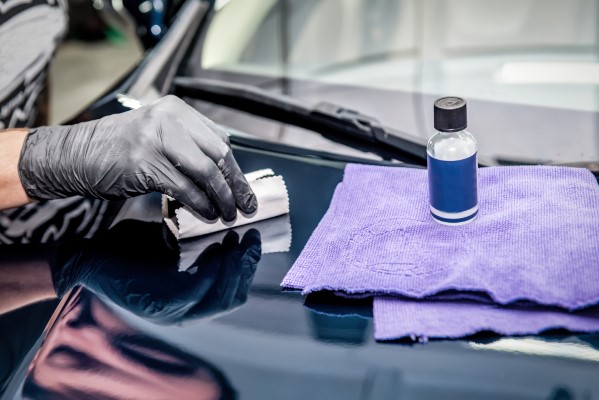
As car enthusiasts, there's a special joy in seeing our vehicles gleam under the sunlight. Achieving that coveted shine goes beyond a regular wash and wax routine. In the world of DIY exterior care, ceramic coatings provide a protective shield and an enduring luster. Let's delve into the realm of brilliance and unveil the best ceramic coating products for your DIY journey. 1. Adam's Polishes Ceramic Coating This product offers a hydrophobic shield, repelling water like magic, and providing a glossy finish that's second to none. Easy to apply, this ceramic coating is a favorite among DIY enthusiasts, enhancing not just the appearance but also the longevity of your car's exterior. 2. CarPro Cquartz 3.0 Your car's exterior glistening like it just rolled out of the showroom - sounds good, right? CarPro Cquartz 3.0 brings th ... read more
Posted on 12/31/2023
.jpeg)
For owners of older cars, each dent, scratch, and weathered paint layer tells a story—a narrative of journeys taken and memories made. As the years accumulate, the question arises: Is applying a ceramic coating on older cars worth the investment? Let's explore the potential benefits of ceramic coatings and unveil whether they can breathe new life into the weathered charm of your beloved classic or seasoned vehicle. The Magic of Ceramic Coating Ceramic coating is a liquid polymer applied to the exterior surfaces of a vehicle. Once cured, it forms a protective layer that bonds with the factory paint, creating a shield against environmental contaminants, UV rays, bird droppings, and more. While commonly associated with newer cars, the benefits of ceramic coating extend their embrace to old ... read more
Posted on 11/27/2023
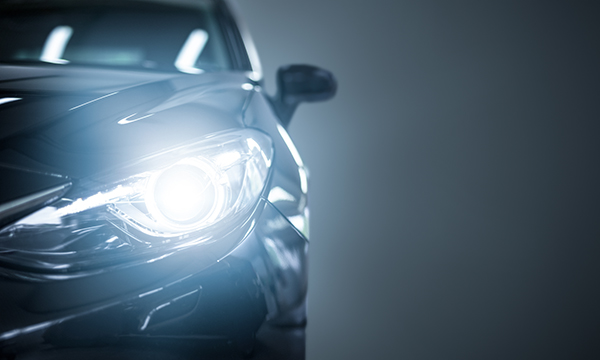
Your car is more than just a vehicle - it's an extension of your personality, a statement of style, and a symbol of your hard work - oh, and also a convenient way of transportation. However, maintaining that glossy, showroom-like finish can be a challenge, especially with the wear and tear of everyday life. Luckily, ceramic coating has emerged as a game-changer in the world of automotive maintenance, providing a durable layer of protection and a stunning, head-turning shine. Even better, you can now achieve this professional-grade finish right at home, without breaking the bank. In today's simple yet detailed guide, we will go into the nitty-gritty of how to ceramic coat your car like a pro, ensuring that your beloved four-wheeled companion remains the envy of the block. Short Disclaimer Before We Start ... read more
Posted on 10/31/2023
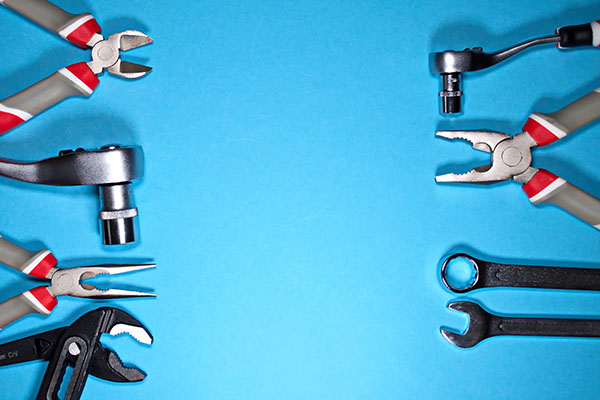
There's a certain sense of accomplishment that comes with tackling car maintenance tasks yourself. Whether you're changing the oil, replacing brake pads, or simply performing routine inspections, being your car's mechanic can save you money and deepen your understanding of your vehicle. However, for a successful at-home car maintenance journey, you'll need the right tools in your arsenal. So, roll up your sleeves, and let's dive into the world of DIY car maintenance tools. 1. Socket Set A quality socket set is the backbone of any DIY car maintenance toolkit. It's essential for everything from changing spark plugs to removing nuts and bolts. 2. Jack and Jack Stands When you need to access the underside of your car, a reliable jack and jack stand are indispensable for lifting it safely and securely. 3. Screwd ... read more
Posted on 9/26/2023
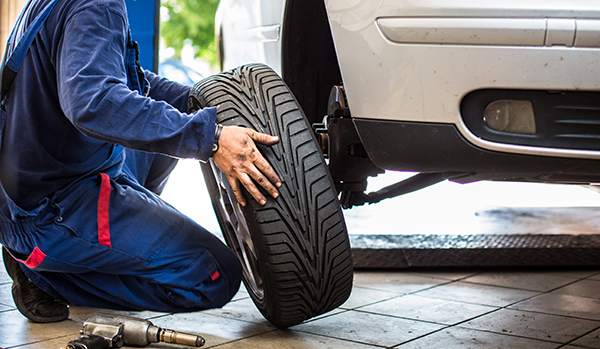
Changing tires might not sound like the most exciting topic, but it's crucial knowledge when it comes to your safety on the road and optimizing your vehicle's performance. Let's take you on a fact-filled guide with everything you need to know about tires. When Should I Change My Tires - 3 Main Factors #1 Tread Depth Tread depth is one of the primary indicators of when it's time to change your tires. The tread is the texture that comes into contact with the road. Over time, as you drive, the tread gradually wears down. You can use a tread depth gauge (or the penny test) to check your tire's tread depth. Tread Depth Gauge: This handy tool is designed to accurately measure tread depth. Place it into the tread groove, and it will show you the remaining tread depth in millimeters or inches. Penny Test: If you don't have a tread depth gauge, a simple ... read more
Posted on 8/28/2023
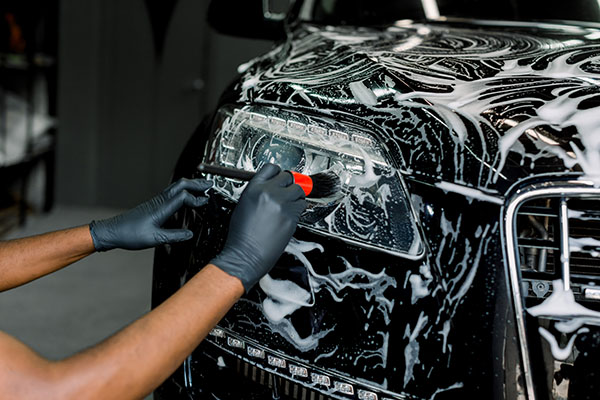
Car detailing is an essential aspect of car maintenance that involves cleaning, restoring, and protecting various surfaces of your vehicle. It helps to preserve your car's appearance, extend its lifespan, and maintain its resale value. When it comes to detailing, you have two primary options: doing it yourself at home or taking your car to a professional detailing shop. Car Detailing at HomePros of Car Detailing at Home:|Cost Savings One of the most significant advantages of detailing your car at home is cost savings. Purchasing car detailing products and equipment can be more affordable in the long run than paying for professional services. |Convenience Detailing your car at home gives you the flexibility to work at your own pace and schedule. You can take your time to focus on specific areas that require extra attention without feeling rushed ... read more
Posted on 7/11/2023
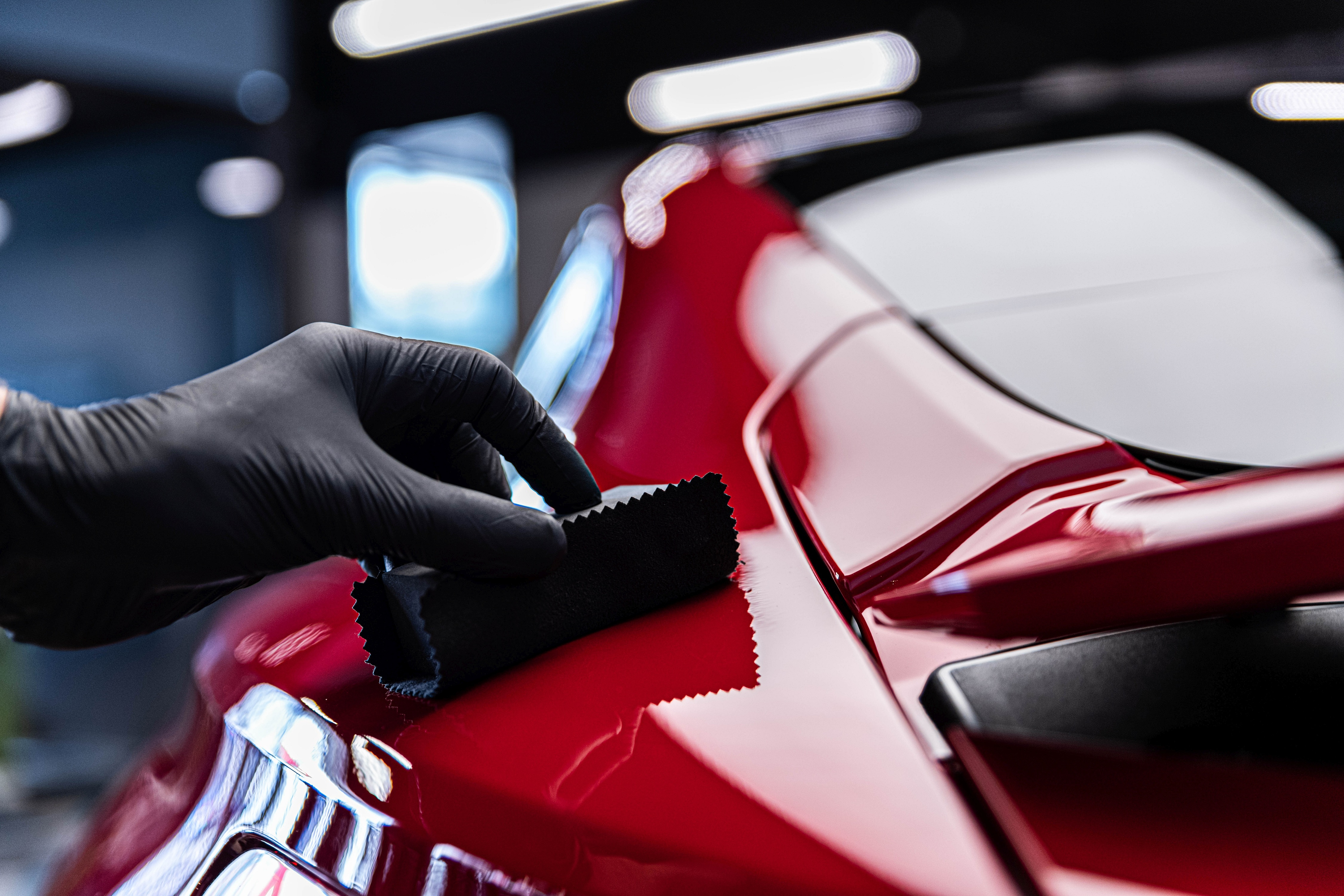
In recent years, the ceramic coating has gained popularity as a superior form of vehicle paint/exterior protection. But have you ever wondered about the science behind ceramic coating and how it is done? Well, we will get into the intricacies of ceramic coating, exploring the science behind its formulation, the application process, and the benefits it provides to your vehicle. What Is Ceramic Coating Ceramic coating is a liquid polymer, commonly composed of nanoparticles of silicon dioxide (SiO2) and titanium dioxide (TiO2). These nanoparticles create a protective layer that chemically bonds with the vehicle's paint, forming a durable and hydrophobic surface. The SiO2 and TiO2 molecules create a lattice-like structure that provides superior resistance to UV rays, chemicals, and environmental contaminants. How Is Ceramic Coating Applied?|Surface Preparation Before applying the ceramic coating, proper surface preparation is cru ... read more